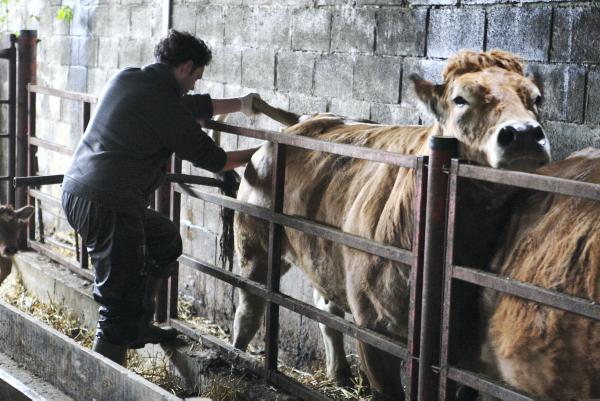Changes to brucellosis controls have been put forward by DARD, which could be the first step towards ending pre-movement testing requirements in NI.
The initial changes would see the age threshold for pre-movement testing increased from 12 to 24 months, and the movement window extended from 30 to 60 days.
The changes would apply only to cattle that move within NI – stock destined for breeding or production in Britain or the Republic of Ireland would still need to meet current requirements.
The proposed changes to pre-movement testing are the subject of a DARD consultation running to 4 July 2014. The new rules would also require an amendment to current legislation, so it is probably a number of months before the changes come into operation.
Policy
Pre-movement testing was introduced for all cattle, except steers, from 1 December 2004. The aim was to reduce the spread of disease between herds, but the policy had a significant impact on throughput of female cattle through marts and brought an added burden of bureaucracy and cost onto farmers. It is currently estimated to be costing farmers around £1.8m per year (taking blood samples), with an additional cost to DARD of £340,000 for laboratory analysis of the samples.
The total savings due to the proposed policy changes are in the region of £1m annually.
Within its consultation, one option considered by DARD is to abolish all pre-movement testing.
However, it maintains this would be premature given that NI is yet to obtain the Officially Brucellosis Free (OBF) status.
At present, we are on track to receive OBF status after February 2015 (three years since the last confirmed case of brucellosis).
The DARD consultation states that “once OBF status is obtained we could continue to consider further relaxations of our pre-movement testing controls in a phased approach, through to possible abolition”.
Obtaining OBF status should also allow DARD to start to relax its annual testing regime










SHARING OPTIONS